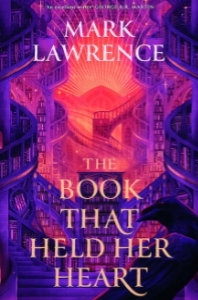Prior to this finale, the scope of the Library Trilogy has been continually increasing, consistently adding new characters and races, then spanning worlds, and even spanning multiple timelines. All part of a rather brutal and bloody conflict, the latest chapter of an eternal war over the right to share knowledge. The time spanning library at the center of this battle has made for a unique backdrop, and three different factions have been built up all striving for different outcomes. There are those who want to preserve the library and ensure that the knowledge within it remains freely accessible to all, there are those that want to destroy it and force the knowledge to be properly earned rather than given, and there is the middle ground that want to preserve the library and make the knowledge available in a more controlled way. So did all this set up from the first two books adequately set the stage for this grand finale where we ultimately learn the outcome of this eternal battle?
Not exactly. Apparently Mark Lawrence felt the need to complicate the story even further and get into the whole multiverse thing because where else could he go? Now not only are the characters moving forward and backwards in time, but they are also entering and exiting "maybe" realities in search of resolution to the battle. Combine that with the fact that the story starts by paying a visit to Nazi Germany (just why?) and I found myself wishing that the final book was more about paying off the setup from the first two books and less about taking it to another level. When the time for payoff finally came around, I was mostly uninterested in the outcome because the inclusion of "maybe" realities into the story had already removed real consequences from the equation. IMO the resolution was a weak one, and it ultimately resulted in me viewing the series as not worth it overall. Hindsight tells me that I should have bailed after the first book, which I have done on other Mark Lawrence series in the past. It's unfortunate because this one had real potential.
Jessica Whittaker did a decent job on the narration and her read was on par with book one. Thankfully, she learned how to pronounce "automaton" this time around, correcting the issue I complained about for book two.

